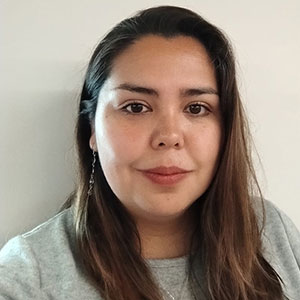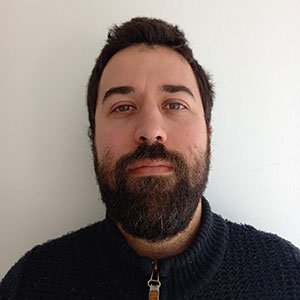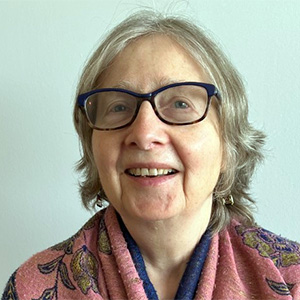2023 PROLAB winners named
Science again crisscrosses the Americas this year, as 10 early-career researchers receive travel grants from Promoting Research Opportunities for Latin American Biochemists, a program that helps grantees further their research by working in laboratories in North America.
Since 2012, the American Society for Biochemistry and Molecular Biology, the Pan-American Society for Biochemistry and Molecular Biology and the International Union for Biochemistry and Molecular Biology have given 103 biochemists these awards. The program welcomes applicants from Argentina, Brazil, Chile, Peru, Uruguay, Cuba, Panama, Mexico, Spain and Portugal. Awards support travel and related expenses.
This year’s PROLAB travel grants go to doctoral students, postdoctoral fellows and early-career scientists from Argentina, Chile, Mexico, Uruguay and Spain. Grantees will work in Canada and the United States.
The 2023 recipients are:
María Vanesa Amarelle Larrosa
Project title: Functional genomics of alternative SynBio chassis: shortening the gap for developing synthetic biology hosts

Amarelle is a research assistant in the microbial biochemistry and genomics department at the Clemente Estable Institute of Biological Research in Montevideo, Uruguay. She works on synthetic biology, searching for new biological parts (such as promoters, terminators and coding sequences) and developing a new bacterial chassis. She earned her Ph.D. in basic science development from Montevideo’s University of the Republic.
Amarelle is committed to science outreach and belongs to ComicBacterias, a group promoting microbiology education through comic books. She coordinated two of these: “Bacteria: Lights in the Sky” and “Who Are They? Twelve Uruguayan Women in STEM.”
Amarelle will work with Federico Rosconi and Juan Ortiz–Marquez in the Microbial Systems Biology Lab at Boston College. The research team offers broad experience in functional genomics, from to CRISPR interference.
“This grant opens up the possibility for me to enhance my expertise in functional genomics, be trained in cutting-edge technologies and collaborate with a research group with great expertise,” Amarelle said. “It is an incredible chance to not only expand my knowledge but also to make meaningful contributions to the field of synthetic biology.”
Andrea Celeste Arismendi Sosa
Project title: The effect of dehydroleucodine on mast cell function and responses to Helicobacter pylori infection

Arismendi works on a research project to combat hunger, “Sustainable Productive and Regional Development to Incorporate Added Value to Dairy Products.” She is a lecturer in microbiology at the National University of San Luis and is studying toward specialization in university teaching at the National University of Cuyo, both in Argentina. She earned her biochemistry Ph.D. at San Luis and then had a postdoctoral fellowship with Alicia Penissi and Alba Vega at the National Scientific and Technical Research Council studying how virgin olive oil combats Helicobacter pylori infections in mice and inhibits H. pylori–induced mast cell activation.
Arismendi will work with Marianna Kulka, team lead of biomedical nanotechnologies at the National Research Council Canada’s Nanotechnology Research Center. Kulka oversees four laboratories that probe molecular biology, nanomedicine, synthetic organic chemistry and cryogenic electron microscopy.
“This opportunity means a lot to me, since it allows me to continue training and have the possibility of ties with other research groups,” Arismendi said.
Viviana Andrea Cavieres Risco
Project title: Possible role of membrane contact sites between the endoplasmic reticulum (ER) and lysosomes in resistance to chemotherapeutics in breast cancer cell models modulated by key ER proteins

Cavieres is a postdoctoral fellow in Patricia Burgos’ lab at the Center for Cell Biology and Biomedicine at the University of San Sebastián in Providencia, Chile, where she studies the potential involvement of endoplasmic reticulum quality control in resistance to chemotherapy for breast cancer. She previously served as staff scientist for a project on selective catabolic degradation of the endoplasmic reticulum by an Atg5-independent mechanism.
Cavieres earned her Ph.D., specializing in cellular and molecular biology, at the Austral University of Chile, in Valdivia. She investigated the role of the GOLPH3 oncoprotein in the function of lysosomes in breast cancer cells, mentored by Gonzalo Mardones.
Cavieres will work in Juan Bonifacino’s lab at the Eunice Kennedy Shriver National Institute of Child Health and Human Development, which is part of the National Institutes of Health, where she will learn correlative light electron microscopy.
“This travel grant will provide me with an opportunity to learn a complex technique firsthand, which will greatly contribute to the advancement of my scientific career,” Cavieres said. “It will enable me to implement a novel approach for evaluating cell morphology in Chile.”
Andrés Di Paolo
Project title: Disruption of organelle interaction in the long axis of neurons in vivo and in vitro

Di Paolo heads the fluorescent microscopy platform while doing postdoctoral work in the genomics department at the Clemente Estable Institute of Biological Research in Montevideo, Uruguay. He studies subcellular localization of protein translation and earned his Ph.D. at Uruguay’s University of the Republic.
Di Paolo received a 2022 award from the Jacobo and Estela Klip Fund at the Hospital for Sick Children in Toronto, Canada. With that grant and his PROLAB travel award, he will work in Peter Kim’s cell biology lab at the University of Toronto. In 2024, with an Alexander Von Humboldt fellowship, Di Paolo will study with Markus Sauer, an expert in (d)STORM super-resolution microscopy techniques, in Wurzburg, Germany.
Di Paolo aims to use his training in super-resolved structured illumination microscopy to study the interactions of organelles in axons at basal and injury conditions and bring his skills to Uruguay, which is developing its first super-resolution microscope.
“Thanks to the PROLAB fellowship and the Jacobo and Estela Klip scholarship, I have the incredible opportunity to learn different super-resolution microscopy techniques and apply them in the study of organelle interactions in axons,” Di Paolo said.
María Victoria Gutierrez
Project title: Effects of nitrolipids on lipid metabolism and scavenger receptor expression in monocytes, and their links to atherosclerosis.

Gutierrez is pursuing a Ph.D. in biochemistry at the National University of Córdoba in Argentina while also serving as an assistant professor. She holds a master’s degree in biochemistry with a concentration in molecular biochemistry from the same institution.
Gutierrez will work in Francisco José Schopfer’s lab in the pharmacology and chemical biology department at the University of Pittsburgh. Schopfer’s team discovered nitrated fatty acids in the early 2000s and continues to study their formation and metabolism. Gutierrez hopes to learn more about nitrolipids using new skills in mass spectrometry.
“The PROLAB program will allow me to boost my knowledge in mass spectrometry techniques and lipid metabolism in monocytes and macrophages,” Gutierrez said. “I am very grateful for this opportunity and think it will greatly impact my academic and personal growth.”
Susana Guzmán Puyol
Project title: Full characterization by solid-state nuclear magnetic resonance spectroscopy of suberin-based films obtained from suberin monomers

Gúzman is a postdoctoral researcher at the Institute for Mediterranean and Subtropical Horticulture in Spain. As a chemist, she specializes in the production of sustainable packaging from discarded plant biomass. She earned her Ph.D. in nanosciences at the University of Genoa in Italy, with a focus on developing novel bioplastics from vegetable wastes. She holds bachelor’s and master’s degrees from the University of Málaga in Spain.
Gúzman will work with Ruth Stark, director of the City University of New York Institute for Macromolecular Assemblies at the City College of New York. They plan to conduct solid-state nuclear magnetic resonance tests of suberin polymers from the epidermal tissues of potatoes, with an eye to developing more bio-based materials.
“This grant is a fantastic opportunity for my research career,” Guzman said. “The visit to the Starks lab will allow me to learn about cutting-edge characterization techniques of the chemistry behind complex bio-based materials.”
Coral Martínez Martínez
Project title: Subcellular distribution of an intrinsically disordered protein involved in desiccation and drought tolerance in plants

Martínez is pursuing a Ph.D. at the Institute of Biotechnology at the National Autonomous University of Mexico, in Cuernavaca, where she earned a master’s degree in biochemical sciences. Her master’s thesis dealt with localization of transcripts and proteins of family 4 LEA genes of Arabidopsis thaliana. In addition to her studies, Martínez works as a research assistant on stomatal development and physiology in Phaseolus beans.
Martínez will work with Marisa Otegui at the Center for Quantitative Cell Imaging in the botany department at the University of Wisconsin–Madison. She aims to perform live and electron microscopy cell imaging to analyze the function of late embryo-genesis abundant proteins in protecting plant cells against desiccation and drought.
“The PROLAB grant will provide me with the opportunity to learn complex microscopy techniques that will be of critical importance for the successful completion of my PhD project,” Martinez said. “It will also allow me to continue learning more about microscopy applied to plants, a field of study that has interested me since I started my scientific career.”
Camila Oses Oliveto
Project title: Effects of mechanical forces on the nuclear organization of pluripotency transcription factors in stem cells

Oses is working toward a Ph.D. in biological chemistry at the University of Buenos Aires in Argentina, where she earned the equivalent of a master’s degree in chemistry. She plans to focus on the biophysical study of the dynamical organization of pluripotency transcription factors in embryonic stem cells.
Oses will work in Carlos Bustamante’s lab in the molecular and cell biology department of the University of California, Berkeley. She will test the thesis that mechanical cell perturbations can be transduced to the nucleus, with impacts on the chromatin of embryonic stem cells.
“This opportunity will elevate my research and personal growth and enable me to learn cutting-edge techniques,” Oses said. “I am deeply grateful for this life-changing experience.”
Maria Julia Pimentel Solá
Project title: Autophagy pathways triggered by Leishmania parasites isolated from mucosal leishmaniasis patients

Pimentel studies leishmaniasis, a serious parasitic disease that occurs in parts of the tropics, subtropics and southern Europe. She is completing her Ph.D. at the National Council of Scientific and Technology Research at the Institute of Experimental Pathology in Salta, Argentina. Pimentel also teaches high school biology. She earned a bachelor’s degree in biology at the National University of Salta.
Pimentel will work with John H. Brumell, co-director of the SickKids Inflammatory Bowel Disease Centre and senior scientist with the cell biology program at the Hospital for Sick Children, both in Toronto, and a professor of molecular genetics in the Institute of Medical Science at the University of Toronto.
“I want to express my gratitude to the ASBMB for this fellowship and the opportunity given to other young researchers to expand their investigations,” Pimentel said. “This training at Dr. Brumell´s lab on autophagy in Leishmania infection will help me increase my knowledge of this exciting topic.”
Victoria Rozés–Salvador
Project title: Contribution of the CREB3 transcription factors family to the modulation of the secretory pathway and their involvement in early neuronal development

A cellular neurobiologist, Rozés–Salvador is an assistant professor at the Center for Research in Clinical Biochemistry and Immunology at the National University of Cordoba in Argentina, where she also earned her Ph.D. in chemical sciences and completed two postdoctoral fellowships at the university’s Mercedes y Martin Ferreyra Institute.
Rozés–Salvador will work at the NIH’s Eunice Kennedy Shriver National Institute for Child Health and Human Development with Juan Bonifacino, where she will study the expression of exogenous CREB3L1, as well as short hairpin RNA or CRISPR-mediated silencing of CREB3L1 in human iPSC-derived neurons or rat hippocampal neurons, using lentiviral vectors. She will also probe the effects of these manipulations on gene expression and the secretory pathway in the neurons.
“Celebrating the chance to advance professionally and personally, I am grateful for this grant, which opens doors to new approaches, techniques and boundless opportunities,” Rozés–Salvador said.
Enjoy reading ASBMB Today?
Become a member to receive the print edition four times a year and the digital edition monthly.
Learn moreFeatured jobs
from the ASBMB career center
Get the latest from ASBMB Today
Enter your email address, and we’ll send you a weekly email with recent articles, interviews and more.
Latest in People
People highlights or most popular articles

Sketching, scribbling and scicomm
Graduate student Ari Paiz describes how her love of science and art blend to make her an effective science communicator.

Embrace your neurodivergence and flourish in college
This guide offers practical advice on setting yourself up for success — learn how to leverage campus resources, work with professors and embrace your strengths.

Survival tools for a neurodivergent brain in academia
Working in academia is hard, and being neurodivergent makes it harder. Here are a few tools that may help, from a Ph.D. student with ADHD.

Quieting the static: Building inclusive STEM classrooms
Christin Monroe, an assistant professor of chemistry at Landmark College, offers practical tips to help educators make their classrooms more accessible to neurodivergent scientists.

Hidden strengths of an autistic scientist
Navigating the world of scientific research as an autistic scientist comes with unique challenges —microaggressions, communication hurdles and the constant pressure to conform to social norms, postbaccalaureate student Taylor Stolberg writes.

Richard Silverman to speak at ASBMB 2025
Richard Silverman and Melissa Moore are the featured speakers at the ASBMB annual meeting to be held April 12-15 in Chicago.

